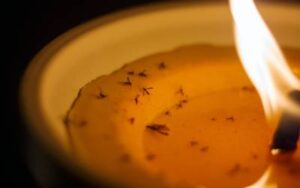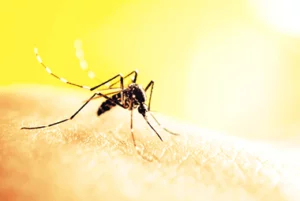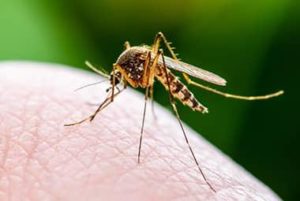Over the next few weeks, we’ll continue to discuss pests that can be controlled with home maintenance since this is the time of year when people are usually working on the exteriors of their homes. We wanted to take a break now, however, to answer a question that has been popping up the last few weeks. The people of East Tennessee want to know whether a cold snap in the spring will lower the summer bug population, particularly for mosquitoes. This week, we’ll take a look at that question and also cover some fun facts about mosquito life cycles (and by “fun,” I mean “upsetting”). Next time, we’ll provide more information about mosquito breeding habits and give you some practical advice to lower the mosquito population in your yard.
May of 2011 was a month of extremes. The Knoxville area had temperatures in the 90s by early May, which were unexpectedly followed by a cold snap that saw highs in the 50s and 60s. The mosquito population is definitely affected by the weather; we typically see their numbers start to rise around mid-May when the nights are consistently above 50 degrees. Unfortunately, however, an abrupt cold spell may lower the mosquito population at the time, but it won’t curb their numbers for the season.
Insects are masters of adaptation; they are hard-wired to make up lost ground when the weather deals them an unexpected bad turn. For instance, we have found that after exceptionally cold winters when you might expect the termite population to suffer, the following springs are often full of termite swarms. The reason is not because the cold weather was good for the termites. Rather, the colony recognizes that lives were lost during the bad season, so instinct tells them to begin a population explosion to protect the strength of their species. Mosquito populations can work the same way. If some died because they could not find shelter during that chilly week, the surviving pests will be geared to reproduce at a higher rate to protect their population. And, when you consider that the strongest mosquitoes are the ones who survived the cold, you must also consider that their young will carry all of those strong traits; there will be few sickly mosquitoes to weaken this year’s population.
Many people are not aware that mosquitoes aren’t primarily blood-feeders. In fact, their preferred meal is flower nectar; only the females drink blood when they’re preparing to lay eggs. This is the upsetting part. Female mosquitoes around here lay 200-300 eggs at a time. That means that for every mosquito bite you get, 300 new mosquitoes are hatched somewhere nearby!
In light of this bad news, here are a couple of tips to protect yourself; we’ll get into more practical details next time. First, consider the mosquito’s schedule when making your plans. Some species are only active during the day while others are only out at night. That’s why outdoor activities at dawn and dusk are so unpleasant; you’re getting attacked by every species at the same time. Avoid being outdoors then if you can. Also, bear in mind that mosquitoes are normally attracted to flowers. If you’re going to be outside in the evening, you may want to skip the sweet-smelling lotions or colognes that day so that you don’t draw them to you. The National Pest Management Association also indicates that using a pest repellant containing DEET on exposed skin can keep the mosquitoes off; read the label of your insect repellent to see if it contains DEET and to be sure you’re using it safely and correctly.
This gets us through the basics about mosquitoes and the cold weather. Next time, we’ll work on lowering the population in your yard to keep you safe and comfortable this summer. Call us with more questions or contact us through our website.
Cold Weather And Mosquitoes in Knoxville TN
Serving East Tennessee since 1971


